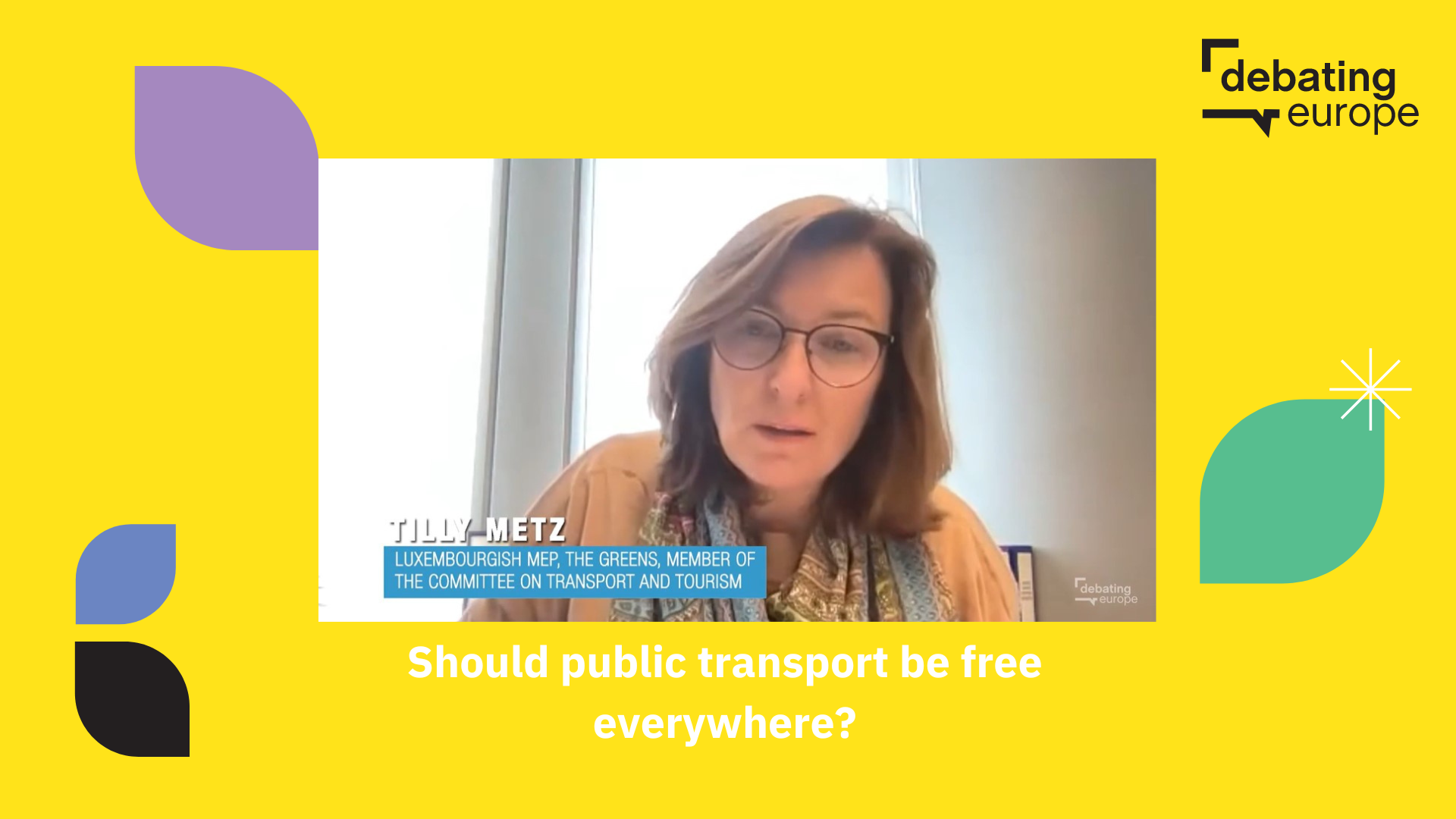Data and reports
Should public transport be free everywhere?

Hop on any bus or tram in the country without paying a single penny?
What sounds like a dream has been reality for everyone in Luxembourg since 2019. The small EU state was the first country in the world to offer free public transport, even though Luxembourg is known as an “automobile paradise” as the country with the most cars per capita in the EU. So why did it decide to take this step? Luxembourg City suffers from high levels of congestion, and air pollution. If more people ditched their cars in favour of free or cheap public transport there would be fewer traffic jams, less pollution and also fewer carbon emissions, which is important in the fight against climate change. So, should more countries introduce free public transport? In response to the energy crisis and sky-rocketing consumer prices, Spain recently introduced a free rail travel scheme to cut commuters costs and the so-called “9-Euro-Ticket” enabled people to travel across Germany for less than ten euros a month over the summer. Is it time to introduce schemes like these across the entire EU? How could this be financed?
What do our readers think?
You sent us YOUR questions and comments and we forwarded them to two politicians! You can find their answers in the video above!
- Bernd Riexinger is a member of the German Bundestag of the Left Party and a member of the Transport Committee and Parliamentary Advisory Council on Sustainable Development as well as ver.di trade union secretary
- Tilly Metz is a Luxembourgish MEP from the Green/EFA group and member of the ENVI Committee on the Environment, Public Health and Food Safety and the TRAN Committee on Transport and Tourism
Our reader Paul asks:
💬 How could free public transport for everyone be financed?
How would Green MEP Tilly Metz answer Paul’s question? You can watch her answer in the video at the top of this article.
We also reached out to Bernd Riexinger, member of the German parliament and trade union leader, for a perspective on the situation in the EU’s largest member state, Germany. How would he respond to Paul?
💬 It is not enough to simply offer cheap tickets, we also need to make sure that the buses don’t only run once an hour; especially in rural areas, a lot still needs to be done there. Our calculations show that the necessary expenses for free public transport plus the investments that are needed to expand develop public transport in Germany would probably cost around 20 to 25 billion euros a year. The tax breaks for the so-called “company car privilege”, which tends to favour premium car drivers (70% of new registrations of premium cars are company cars), costs the German state 4.5 billion euros. And for the tax exemption on kerosine, i.e. the fuel used for flying, it pays another 8.5 billion euros and the subsidies for diesel are also another 8.5 billion euros. So we would have 20 billion euros more in our coffers just from this reallocation.
In addition, of course, we have some fundamental demands. Namely, that an excess profits tax be levied, as is now the case in Italy or Spain. Spain is quite interesting, they have levied an excess profit tax of 90% on the energy companies, which are now making a killing, and have immediately invested this money in regional transport. It’s a bit more complicated, but you can now basically travel there free of charge on the regional trains. Something like that would obviously be unthinkable for the “traffic light coalition” here in Germany, yet it would be such a simple solution.
Should public transport be free everywhere?
Would it help fight climate change, and reduce traffic congestion and air pollution in cities? And who would pay?
Photo by Andreas M on Unsplash
Editorially independent content supported by: Google. See our FAQ for more details. Funded by the European Union. Views and opinions expressed are however those of the author(s) only and do not necessarily reflect those of the European Union or the European Commission. Neither the European Union nor the granting authority can be held responsible for them.![]()
